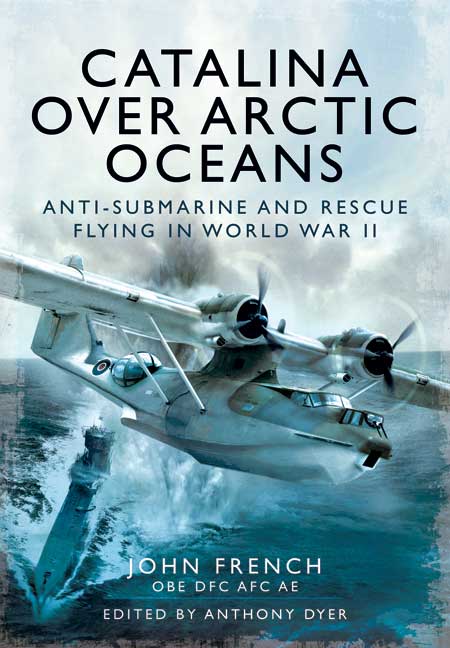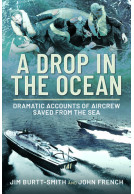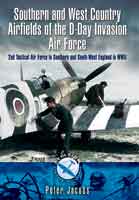Catalina Over Arctic Oceans (Hardback)
Anti-Submarine and Rescue Flying in World War II
Imprint: Pen & Sword Aviation
Pages: 180
ISBN: 9781781590539
Published: 5th February 2013
(click here for international delivery rates)
Need a currency converter? Check XE.com for live rates
| Other formats available - Buy the Hardback and get the eBook for free! | Price |
|---|---|
| Catalina Over Arctic Oceans ePub (5.2 MB) Add to Basket | £6.99 |
John French first took up flying in 1937 with the University of London Air Squadron and in 1938 joined the Royal Air Force Volunteer Reserve. His early war years were spent instructing newly recruited RAF pilots on Airspeed Oxfords and Avro Ansons. When the end of this posting came through he was designated to 210 Squadron at Sullom Voe in the Shetlands to fly the Catalina flying boat. In November 1942 the squadron was ordered south to join 202 Squadron at Gibraltar.
Here they flew sorties in support of the North African landings – Operation Torch. These were lengthy flights out into the Atlantic approaches to Gibraltar or Eastwards into the Mediterranean. He flew fifteen sorties in this short period before returning to Pembroke Dock. He was then instructed to report to Felixstowe to collect Catalina IB FP 222 and to ferry it up to his new base Sullom Voe.
From this northern base the flying boats flew thirty hour patrols out into the Northern Atlantic searching for enemy ships and U-boats. On 8 September he was ordered to execute an extended search of the Norwegian coast where it was thought that the Tirpitz and Scharnhorst were seeking shelter. Having unsuccessfully searched the entire coastline at low-level they finally touched down on the Kola Inlet after a flight of over twenty-two hours.
As February 1944 came towards its end he was detailed to cover a Russian convoy, JW57, far up to the north of the Arctic Circle. Shortly before his ETA with the convoy they got a radar return. They dropped down below the cloud to find a rough angry sea and spotted the wake of a ship. However this was not a ship but a surfaced U-boat. As they flew into attack they met a hail of 37mm and machine-gun fire John dropped to attack level and came in from the stern dropping two depth charges. Thus came the demise of U-601.
On 18 July 1944 a Liberator of 86 Squadron was set on fire during an attack on a U-boat and was forced to ditch some 100 miles west of the Loften Islands. Eight members of the crew took to their dinghies. A Catalina was despatched on a search and rescue mission the following day but failed to find the victims. However on 20 July they were resighted. A volunteer crew was hastily formed and took off at 0130 on the 21st. Some excellent navigation brought the survivors into view at ETA. John decided to attempt a sea landing to effect the rescue. He came in low, into wind and across the swell at 65 knots. His crew soon had the stranded airman aboard, somewhat bedraggled after their sixty-two hour ordeal. They landed back at Sullom at 1410. After the war John stayed in the RAF and spent much of his time behind the Iron Curtain.
A unique and delightful little memoir. This book is a nice diversion from many of the other aviation books we see because it includes much more than just the daily dogfight and bombing operations normally described. Highly recommended.
Naval Aviation News
This is a fascinating read, looking at one of the longest and hardest campaigns of the Second World War, fought over icy oceans in the far north. We also get a look at the pre-war RAF, the early wartime expansion when the author was used as an instructor, the post-war RAF and the early stages of the Cold War.
History of War website
“Excellent result.”
Unknown
“Full of interest and what is particularly pleasing is that all the black and white photos are from John’s personal collection”
“This biographical book is very highly recommended”
A unique delightful little memoir. Interesting photos. This book is a nice diversion from many of the other aviation books we see because it includes much more than just the daily dogfight and bombing operations normally described.
Wings of Gold - Association of Naval Aviation magazine
This is an interesting account and he never lost his interest in keeping records of the aircraft he saw. He even managed to identify the Curtiss Condor freighters that used to make landfall at Harwich before the war en route to Croydon!
Bookshelf
Compiled from the notes of Wing Commander John French, this fascinating memoir catalogues his service with the RAF from 1938 until retirement in 1962, and in particular his wartime association with the Catalina flying boat. With this iconic aircraft he flew sorties in the Mediterranean in support of the landings of the 1st Allied Army in Morocco and Algeria in November 1942, but above all it is the story of that more unfamiliar war in the distant north, flying anti-submarine patrols out of Shetland, searching for downed airmen, attempting to locate the Tirpitz and Scharnhorst battleships hiding in the Norwegian fjords, and escorting the Arctic Convoys to Murmansk.
Mark Hickman, The Pegasus Archive
This is an interesting memoir which adds a little to our appreciation of Catalina ops from the Shetlands and in the Arctic.
Coastal Command & Maritime Ass
This is a quality publication, with a striking cover picture of the sea plane and the enemy u-boat and photos of the author that will fire the interest of those who see the book. From the opening introductions by the author and the editor it is clear that this book has been a true labour of love in it's writing and eventual completion. This is an important book not only to war historians but to local historians of Suffolk and I am pleased that the notes from this time have been kept and organised into this book which will make an excellent addition to the collection of those who buy it.
Felixstowe Radio
About John French
John French died in 1986 leaving copious notes and photos from his service career.
About Anthony Dyer
His grandson , Anthony Dyer, has spent several years preparing this book based on those notes.















